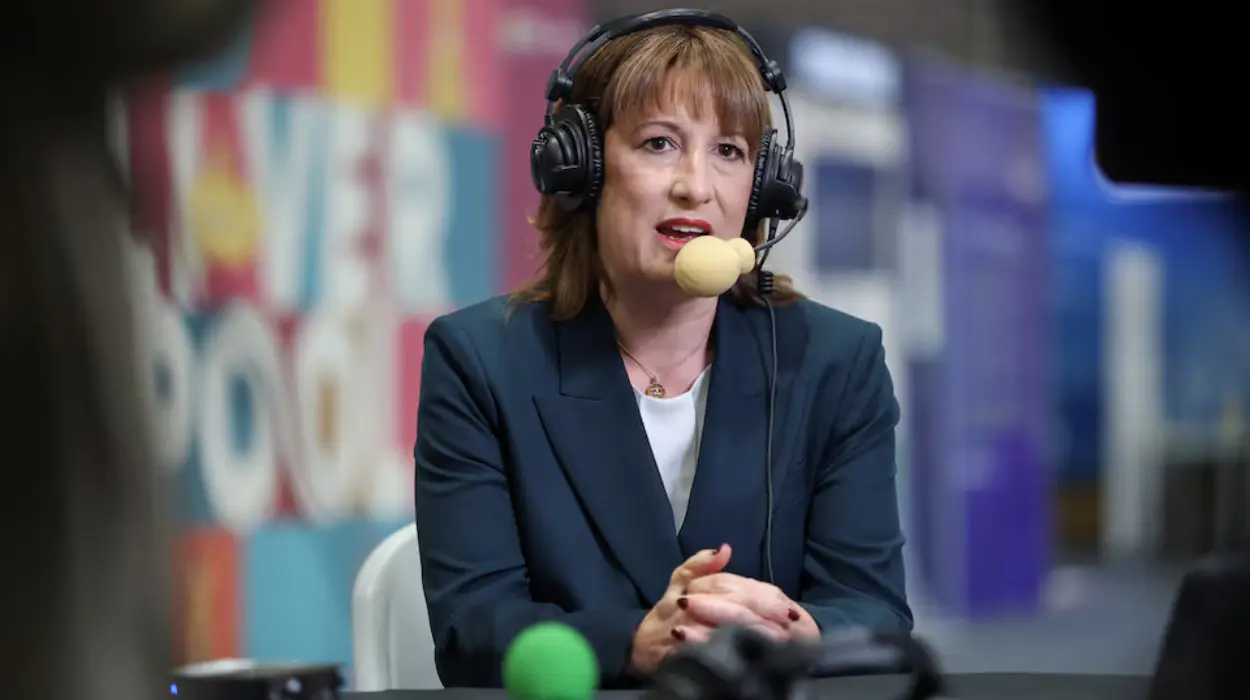UK (Parliament Politics Magazine) – Chancellor Rachel Reeves says the UK should have one yearly budget assessment, following IMF advice, and defends borrowing costs as part of global shifts.
As reported by Reuters, Rachel Reeves said she prefers the budget watchdog to release a single annual review of her fiscal strategy rather than two.
How does Rachel Reeves plan to change OBR forecasts for the annual fiscal review?
Rachel Reeves said,
“The International Monetary Fund have said that we should move to just one major fiscal event a year, and I agree with their recommendations.”
She added,
“And to be able to do that, we do need to change the way that the OBR (Office for Budget Responsibility) do their forecasting. Two full forecasts a year make it harder to have that one fiscal event.”
How did Rachel Reeves respond when asked about a potential VAT hike?
Rachel Reeves has declined to commit to keeping VAT unchanged in the upcoming Budget.
When asked for a clear answer, she responded,
“The manifesto commitments stand.”
Pressed that it wasn’t the same, Ms Reeves replied,
“Well, those manifesto commitments stand for a reason. Because at the general election last year, we were in a position where working people had seen their living standards decline.”
She refused to rule out a VAT increase, insisting that the government’s manifesto promises still hold.
The chancellor added,
“We went through all of this in the general election 15 months ago […] Those manifesto commitments stand because I want to make working people better off.”
What did Rachel Reeves say about potential tax rises in November?
Rachel Reeves has opened the door to the possibility of further tax increases in November.
She said,
“I made a solemn promise at the election to return economic and fiscal stability to the economy and that is anchored around the fiscal rules that say that we will pay for day-to-day spending through tax receipts.”
The chancellor stated,
“And they will get debt down as a share of GDP, [and] subject to that invest in those things to help grow our economy […] Those commitments to the fiscal rules, to economic stability, they absolutely stand.”
She added,
“We will respond to the Budget on Nov 26, we haven’t yet received the forecasts from the independent Office for Budget Responsibility. But of course we will respond to those with a combination of changes if needed to tax and spending.”
How did Rachel Reeves react to the surge in UK borrowing costs?
During an interview, Rachel Reeves was asked if she was partly responsible for higher borrowing costs.
She said,
“At the long end of the curve, you are right that borrowing costs have gone up. But if you look at the charts, if you look at the numbers as I do as well, those long-term borrowing costs are something that have been experienced by countries all around the world.”
The Chancellor said the UK’s borrowing costs reflect global trends. She added that these trends are driven by trade uncertainty, conflicts in Europe and the Middle East, and increased borrowing worldwide.
Ms Reeves stated she expects to meet the fiscal rules ahead of schedule, stating,
“We’ve got those fiscal rules for a reason, to return stability to the economy […] Is there more to do to make working people better off? Absolutely. Is there more to do give businesses the confidence to invest? I’m the first to accept that that is the case.”
She added,
“But if someone had said 15 months ago that we would have had the fastest-growing economy in the G7 in the first half of this year, five cuts in interest rates and trade deals with the biggest economies in the world […] I think you would have said ‘I don’t think so, Chancellor.’”
Rachel Reeves’ views on the UK’s zero growth claims
Rachel Reeves was asked about the UK’s zero growth, which LBC’s Nick Ferrari described as the slowest in the G7.
She responded,
“No, the growth in the first half of this year and the first two quarters are the only two numbers for which comparable numbers are available. We grew by 1 per cent and that was the fastest growth in the G7.”
Ms Reeves refused to reveal the cost of the “youth guarantee,” insisting it does not involve new spending.
She added,
“All of the precise numbers can be set out in the Budget, but this is about allocating money from the Spending Review.”
UK’s 2025 Budget
The UK’s Autumn Budget 2025 will be announced on Wednesday, November 26. It may include changes to property taxes, pensions, and savings, like new property taxes and pension rules.
Taxes on wealth, such as Capital Gains and Inheritance Tax, could also go up. Other possible changes include new taxes on vaping, banks, online gaming, and fuel.


